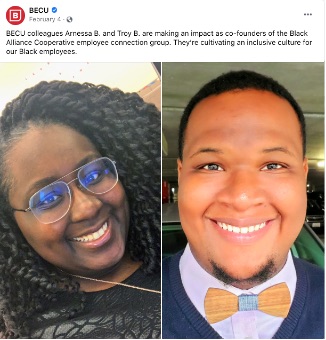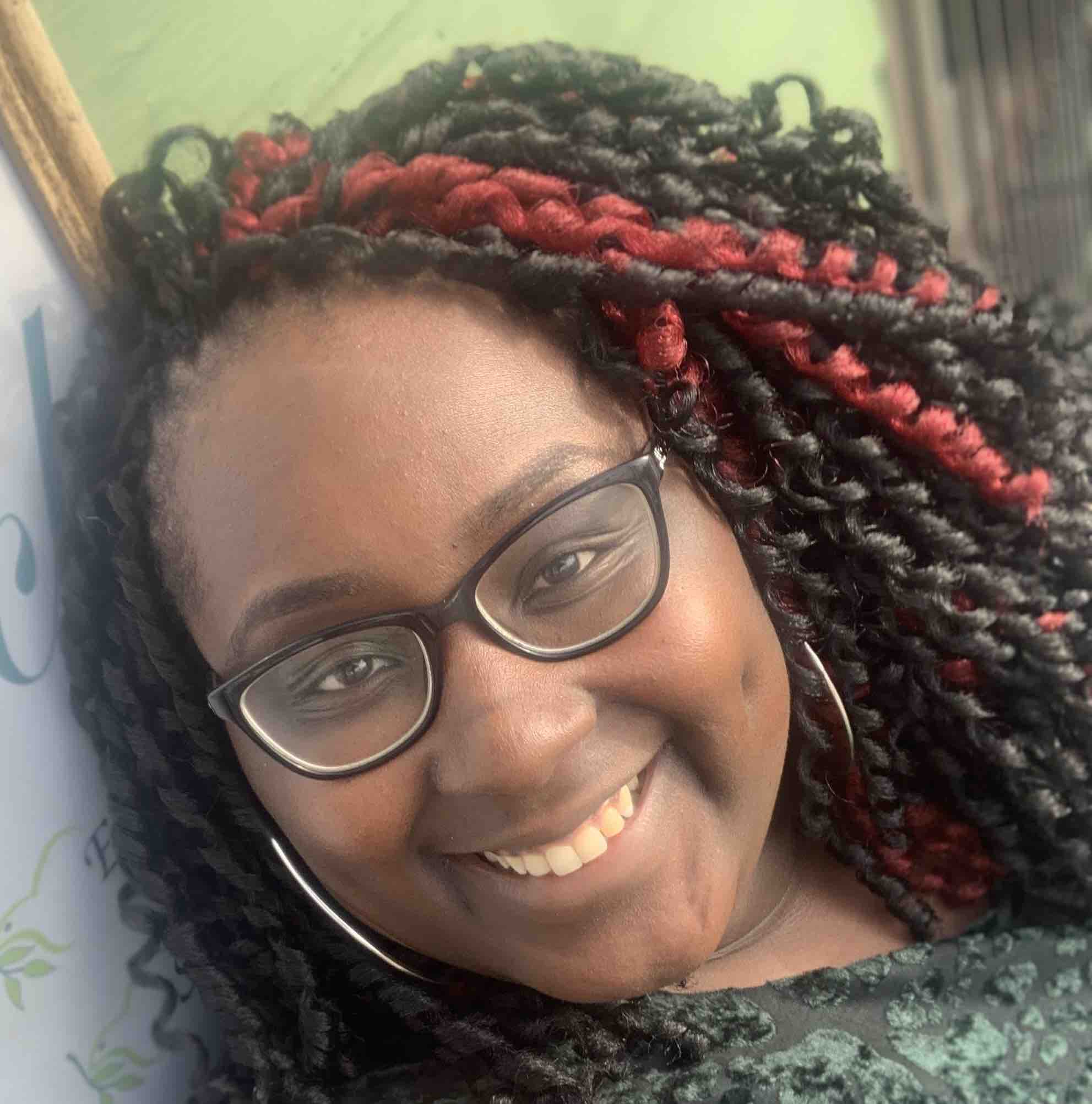5 minutes
If having an ERG didn’t make you afraid, you’d be doing it.
I’ve recently stepped into the role of chair of the Black Alliance Cooperative at $28 billion BECU, Seattle, where I’m also a supervisor in our contact center .
B.A.C. is an employee resource group for 100+ Black-identifying employees at my credit union, as well as open to all people who identify as allies to this group. The group focuses on connecting black employees, educating and bringing awareness to all employees about the black experience overall, and positively impacting our communities.
In this blog, I’ll describe the history of B.A.C., the group’s current work and its plans for the future. I’ll also share some lessons I’ve learned and some points you may want to ponder. I hope this information will help you boost your existing employee resource group or groups—and maybe help you overcome your fear of having one. After all, ERGs can be pathways to helping more employees bring their full selves to work. And this can result in more diversity of thought, better decisions and solid business outcomes.
The Founding of B.A.C.
B.A.C. was founded by Troy Brandon, Jr., a business specialist at BECU. Our initial executive sponsor was Solynn McCurdy, an SVP at the credit union at that time. Brandon was an external hire and new to the Seattle area. As he met more people, he began to ask if there might be a way for black employees to connect. He spoke about this to McCurdy, his mentor, and then came up with the idea for the group[GU1] . About 10 of us had our first informal meeting in the fall of 2018.
B.A.C.’s Activities to Date
While I believe the best is yet to be, B.A.C. has already done a lot. For example, the group:
- Held the first-ever BECU town hall conversation with the executive management team about social unrest and the black employee experience
- Facilitated listening sessions for BECU staff and leadership with Kimberly Harden, Ed.D., founder/CEO of Harden Consulting Group, Seattle
- Created month-long employee communications for Black History Month in February 2021
- Hosted an informational meeting on allyship, including playing and discussing this Amanda Seales video
- Partnered with our cooperative affairs team to champion the Black Community Development Grant, a program that honors local African-American nonprofits with grant funds

Next Steps for This Employee Resource Group
In the near term, B.A.C. plans to enhance its leadership committee to better align with BECU’s strategy for ERGs across the organization, offer quarterly educational events and promote financial literacy in the larger BECU community.
In addition, we’ll also be selecting a new executive sponsor who believes in our mission, as both our founder and our founding sponsor have moved on to other opportunities. Executive sponsors, who typically serve for about two years, impact our group’s effectiveness by sharing their insight as senior leaders in the organization, plus championing our efforts and thereby helping us accomplish our goals.
Lessons Learned
The most satisfying part of leading this group has been connecting with other black employees and creating a safe space for them. We care about each other, support each other and celebrate each other!
The biggest challenge to leading this group has been learning my own lessons while also leading others. I have learned so much about having empathy versus showing empathy and have had to recognize and correct my own biases and incorrect ways of thinking. Now I welcome opportunities to do that because there is always something more you can learn about yourself and others.
Points to Ponder
Although the members of B.A.C. are a group of a shared race (with allies), we are still different people, and we cannot create content based on a singular understanding of blackness. Moving forward, we will be educating and celebrating the spectrum of black culture and experiences—and how we can be better allies to others.
If you’re thinking about starting an employee resource group, decide if you truly want to create safe spaces for potentially uncomfortable conversations, or if you just want the clout of saying you do. Allowing employee groups based on race and/or other protected classes means allowing uncomfortable conversations. Are you ready?
With a membership meeting once a month and a leadership meeting twice a month as the basis for this work, leading an employee resource group takes a lot of time. For me, priority-setting helps. I generally do my B.A.C.-related work one day a week and consider what’s upcoming that needs my attention first.
Finally, the meeting this year where we talked about allyship was eye-opening for me. In my breakout, I realized people can be afraid to be an ally because they’re genuinely afraid of being labeled as racist. I really had to take stock and say to myself, “Am I having empathy on people I want to be my allies or am I being dismissive? Am I making space for people to fail in allyship? After all, people won’t just wake up one day and understand exactly.”
I got involved with things I don’t know much about this year, including putting in place our credit union’s new gender-neutral restroom. Even though I already knew many helpful things about DEI, I learned so much about making people feel safe by being on this team. I like being part of things that enhance my understanding.
How are you enhancing your understanding of diversity, equity and inclusion? How are you facing your fears of what you don’t know? What new things are you learning about that are truly outside of your comfort zone?
We’re in an information age. You can learn behind the scenes by doing a Google search, reading books. Then, with that under your belt, you can open conversations that will boost your learning, but that might also be uncomfortable. You could even start, join or lead an ERG.
Arnessa Belin is contact center supervisor and Black Alliance Cooperative chair for $28 billion BECU, Seattle.






